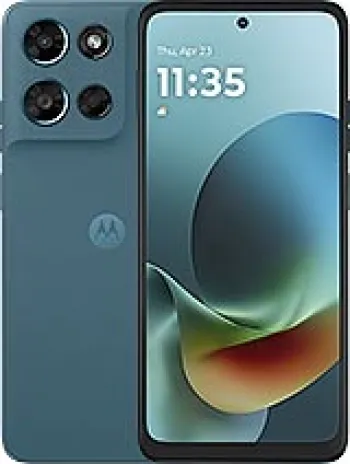
Overview of Motorola V171
The Motorola V171 stands as a notable example of early 2000s mobile phone technology, offering basic communication functionalities that were standard at the time. Released in the fourth quarter of 2004, this feature phone catered to users who needed straightforward telecommunication without the complexities of modern smartphones. Despite its simplicity, the V171 had several features that were appealing to its audience, primarily due to its compact size, build quality, and reliable performance in terms of battery life.
Design and Build
The Motorola V171 measures 106 x 44 x 23 mm and weighs just 83 grams. Its compact and lightweight design made it easy to carry and handle. The phone's body was crafted for durability, featuring a simple, silver-colored aesthetic that appealed to a wide range of users. The use of Mini-SIM further highlighted its utility-first design, a standard during its release period.
Display
The V171 is equipped with a CSTN display capable of showing 4096 colors, with a resolution of 96 x 64 pixels. Although the display quality is minimal by today's standards, it was sufficient for the phone’s basic functionalities, which included messaging and simple menu navigation. The screen supported a 3:2 ratio, which allowed for the display of three lines of text, making it practical for reading SMS and navigation through the phone's limited menu options.
Network and Connectivity
The phone supports GSM technology and operates on 2G bands GSM 900 and GSM 1800, reflecting the network capabilities of that era. While it supports GPRS Class 8 for basic data services, the V171 does not offer modern connectivity options such as Bluetooth, WLAN, or USB connections. The lack of EDGE technology and other connectivity features like GPS positioning and radio is indicative of its primary role as a basic communication device.
Memory
The Motorola V171 does not possess advanced memory capabilities, aligning with feature phones of its time. It lacks a card slot for memory expansion and relies solely on the SIM card for phonebook storage. The call records feature holds up to 10 dialed, 10 received, and 10 missed calls, indicative of the phone's focus on basic use.
Sound and Alerts
Although the device does not include a loudspeaker or a 3.5mm audio jack, it provides vibration alerts and supports downloadable polyphonic and monophonic ringtones, offering users methods to personalize their notification sounds to some extent.
Battery Life
One of the Motorola V171's significant strengths was its battery longevity, powered by a removable Li-Ion 920 mAh battery. Users could expect a standby time of up to 300 hours and a talk time of approximately 6 hours and 40 minutes. This extended battery life was particularly appealing to users who prioritized phone uptime and reliability over advanced features.
Additional Features
While the Motorola V171 was light on additional features, it did support basic SMS, EMS, and instant messaging services. The WAP 1.2.1 browser facilitated basic internet browsing, albeit very limited by modern standards. The phone included three simple games, adding a small element of entertainment and leisure to its feature set. However, the phone did not support Java, limiting downloadable content and applications.
Conclusion
The Motorola V171 embodied the fundamental mobile phone experience of the early 2000s, focusing heavily on core communication functions while eschewing the multimedia and connectivity features that now dominate the smartphone market. Its simple design, reliable performance, and long battery life made it an appealing choice for users who needed a basic, durable phone. While it is now discontinued and surpassed by advanced technology, the V171 remains a nostalgic piece of mobile history, representing a time when mobile devices were undergoing rapid development and change.
Key Features of Motorola V171
- Compact Design: Dimensions of 106 x 44 x 23 mm and a lightweight of 83 g.
- Display: CSTN screen with 4096 colors for basic visual needs.
- Network: GSM technology supporting 900/1800 MHz bands with GPRS Class 8.
- Battery Life: Removable Li-Ion 920 mAh battery offering up to 300 hours of standby time and up to 6 hours and 40 minutes of talk time.
- Messaging Support: SMS, EMS, and Instant Messaging capabilities.
- Entertainment: Includes 3 built-in games for user engagement.
- Alert Options: Vibration with Downloadable polyphonic and monophonic ringtones.
Disadvantages of Motorola V171
- No support for EDGE technology, limiting internet speed.
- Lacks a camera, which is a basic feature in many phones.
- Display with only 4096 colors, offering lower image quality compared to modern standards.
- No expandable memory as there is no card slot.
- Phonebook limited to SIM storage only.
- No loudspeaker and lacks a standard 3.5mm headphone jack.
- Absence of WLAN and Bluetooth for wireless connectivity.
- No GPS or radio functionality.
- Java applications are not supported.
- Basic WAP 1.2.1 browser offers limited web capabilities.
- The device has been discontinued, limiting support and spare parts availability.



















View Also
More Phones
All Rights Reserved +14266 Phones © Mobilawy 2025

























